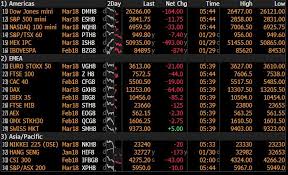Stock Investors Are Buying On The Tariff Trade War Dip

The past week may have been a bearish one for a stock market rocked by escalating trade tensions between the U.S. and China. But where some may have been scared into selling off, others have seen an opportunity to “buy the dip.”
Despite the S&P 500 dropping -2.2% last week after the Trump administration’s announcement that it would raise tariffs on $ 200 billion of Chinese imports, Bank of America Merrill Lynch reported that its clients were net buyers of U.S. equities last week. In fact, investors posted the biggest weekly inflow into U.S. stocks seen so far this year, the investment bank said in a note on Tuesday.
Somewhat counterintuitively, flows into “cyclical” and “foreign-exposed” sectors last week were greater than those into “domestic/defensive” sectors, according to BofAML, which may indicate that equity investors were expecting “a benign resolution” on the trade dispute.
Those hopes took a hit when China announced retaliatory import tariffs on $ 60 billion of American goods on Monday. That move sent the Dow Jones Industrial Average tumbling by more than 600 points, or more than 2%, at close yesterday—though stocks rebounded Tuesday morning, with the Dow gaining back more than 300 points.
While the trade tensions have prompted many to reevaluate where they’re choosing to invest, BofAML said it saw net inflows in nine out of the 11 stock market sectors—with tech, financials, health care and materials all experiencing “near-record inflows.” Sentiment towards the health care sector, in particular, has “reversed dramatically” in recent weeks, with outflows from health care stocks this year driven by policy concerns like the “Medicare for All” proposals being floated by some Democratic presidential nominees.
All in all, BofAML equity strategists say they’re seeing an exception to the old saying that stock market investors should “sell in May and go away.”
“While there may be volatility around trade, we note that the macro backdrop isn’t all that bad,” they said. “In fact, it’s quite the opposite; with macro data improving and central banks more accommodative, it’s supporting the view that the current economic cycle has been extended.”
With Chinese stocks also taking a hit in lieu of the trade tumult, some investors have also looked to buy the dip as it pertains to Chinese equities. None other than Goldman Sachs Asset Management, the investment bank’s $ 1.4 trillion investment management unit, has reinstated its “long” position on China’s onshore equity market, Bloomberg reported on Tuesday.
More must-read stories from Fortune:
—Warren Buffett’s best stock picks over the past year
—How Tumblr’s trouble illustrates Verizon’s messy media strategy
—“Staggered” boards are paying off for stock investors
—Why “debt ceiling” may become a buzzword this summer
—Don’t miss the daily Term Sheet, Fortune‘s newsletter on deals and dealmakers

